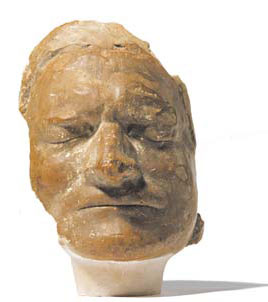A royal bastion of science, defending the faith
Updated: 2012-09-23 08:01
By Michael Powell(The New York Times)
|
|||||||
LONDON - To stroll out of Carlton Gardens into the elegant confines of the Royal Society is to find a trove of centuries-old wonders, from Sir Isaac Newton's reflecting telescope to the first electric machine to fantastical illustrated catalogs of fish and birds.
Then you enter the sunlight-suffused office of the society's president, Sir Paul Nurse. With his spiky mass of white hair, broad nose, ready smile and thick work boots, he looks the part of old-fashioned knight of science. But this Nobel Prize winner in medicine offers a very 21st-century lament.
"Policy debate these days involves trying to rubbish the science, and that is dangerous," Dr. Nurse says. "Global warming denialists, those who oppose genetically modified crops and vaccinations, or the teaching of evolution: their trick is treat scientific argument as if it's a political argument, and cherry-pick data."
Dr. Nurse feels this danger more passionately than most, for the society he presides over was the crucible of the scientific revolution that formed the modern world.
The society conducts studies, consults on government panels and has 1,450 fellows, about 80 of them Nobel winners. Yet theirs is, at times, an embattled world.
|
The Royal Society, founded in 1660, has numerous artifacts, including Sir Isaac Newton's death mask. The Royal Society |
Founded in 1660, the Royal Society is the world's oldest continuous scientific society. Newton, Christopher Wren, Robert Boyle and many more came together in a spirit of revolutionary if at times eccentric inquiry.
King Charles II granted the society a royal charter in 1662, and for centuries it hitched a ride on the back of Britain's imperial ambitions. Explorers, scientific-minded military officers and colonial officials, and merchants - not just British - collected specimens, mapped unknown lands and recorded observations in every corner of the globe. And they shipped all of this, with accompanying essays, to the Royal Society.
The society no longer occupies that globe-dominating perch. The United States casts a much longer shadow, with billions of dollars spent on research and industrial might; American scientists dominate many disciplines. And other nations, not least China, are gaining.
But the Royal Society's journals, particularly The Philosophical Transactions and The Proceedings of the Royal Society, remain vibrant. And British scientists often achieve a written elegance and synthesis of argument that sometimes outstrips their American counterparts.
Ask the chemist Martyn Poliakoff, the society's foreign secretary, if it and British scientists in general are still relevant, and he replies: "You conflate quantity and quality," adding that they have outsized influence given their numbers.
The society's librarian, Keith Moore, points to the shutter-eyed and formidable visage of Isaac Newton, an early president of the Royal Society. This is his death mask, fashioned from a cast of his face, sitting on a table in front of me.
Critics attacked Newton as an occultist for theorizing about gravity, as it was unseen and not mechanical. Still, he dominated the society's early years.
The society's influence has waxed and waned. As the founding members passed into history, lords and earls reasserted intellectually deadening class privileges.
But always there was a hunger to discover new corners of a still wondrous world. Benjamin Franklin joined the society. Even the early Puritans, wary of royalty, yearned for entry.
"Cotton Mather was desperate to get in," Mr. Moore said. "He sent an account of a mastodon skeleton."
That Dr. Nurse spends the first 20 minutes of an interview about the Royal Society talking about the role of the United States is perhaps not surprising. He served a stretch as president of Rockefeller University in New York City. What happens to science in the United States, for good and ill, is too important to ignore.
He wonders how it is that a nation that produces the wonders of Silicon Valley and great research centers has large stretches where the theory of evolution is not taught.
"You don't hear these debates in New York City, or indeed on either coast," he says. "I wonder if American science would thrive if it were based in Kansas."
Some of those battles have started to jump the Atlantic with more vigor than in the past. Not long ago, it was rare to hear a political challenge in Europe to the scientific consensus around global warming. Not anymore.
Dr. Nurse can't hide his impatience with those who deny a strong human hand in global warming. More broadly, he doesn't fret about American dominance. That is just the way it is. Perhaps some cultural differences even accrue to the British side of the ledger.
He recalls, as a child in Norwich, running down a dirt road in his pajamas, watching Sputnik 2 track a path in the predawn sky.
"I feel utterly privileged to be a scientist at this society," he says. "To be paid to think and talk about such questions? Astonishing."
The New York Times
(China Daily 09/23/2012 page11)
